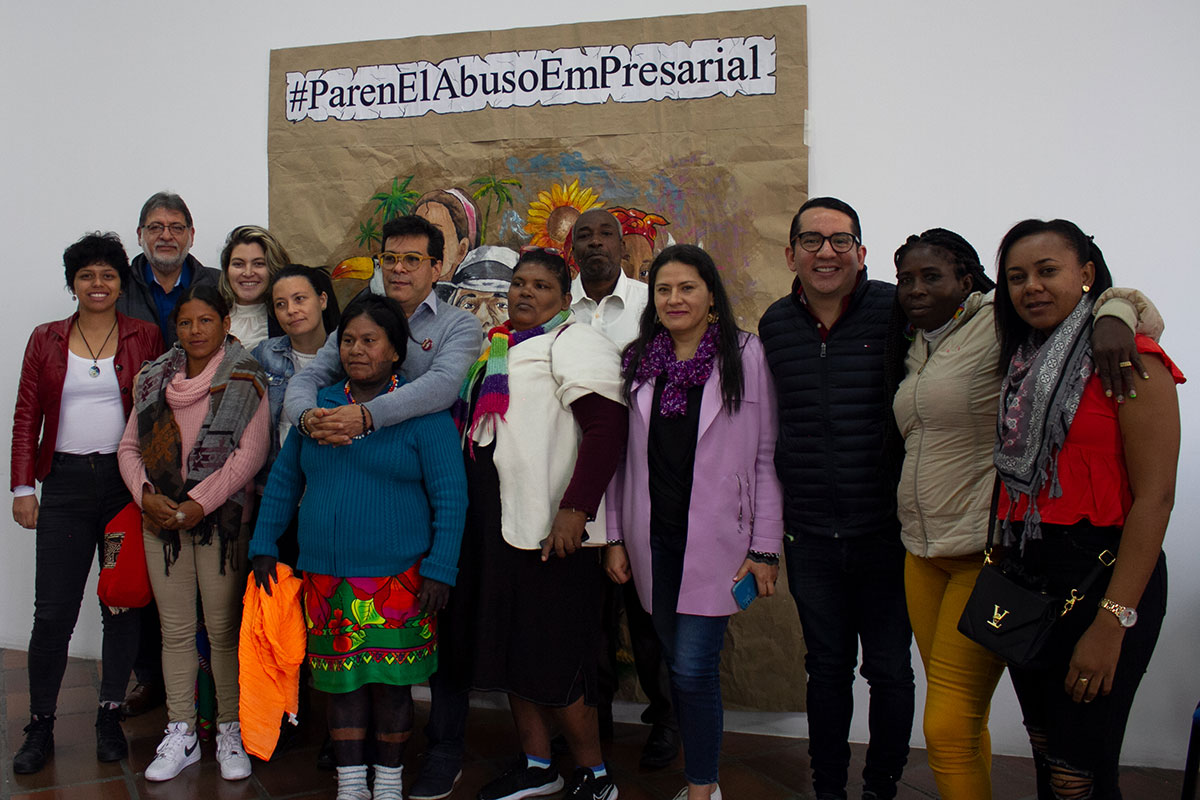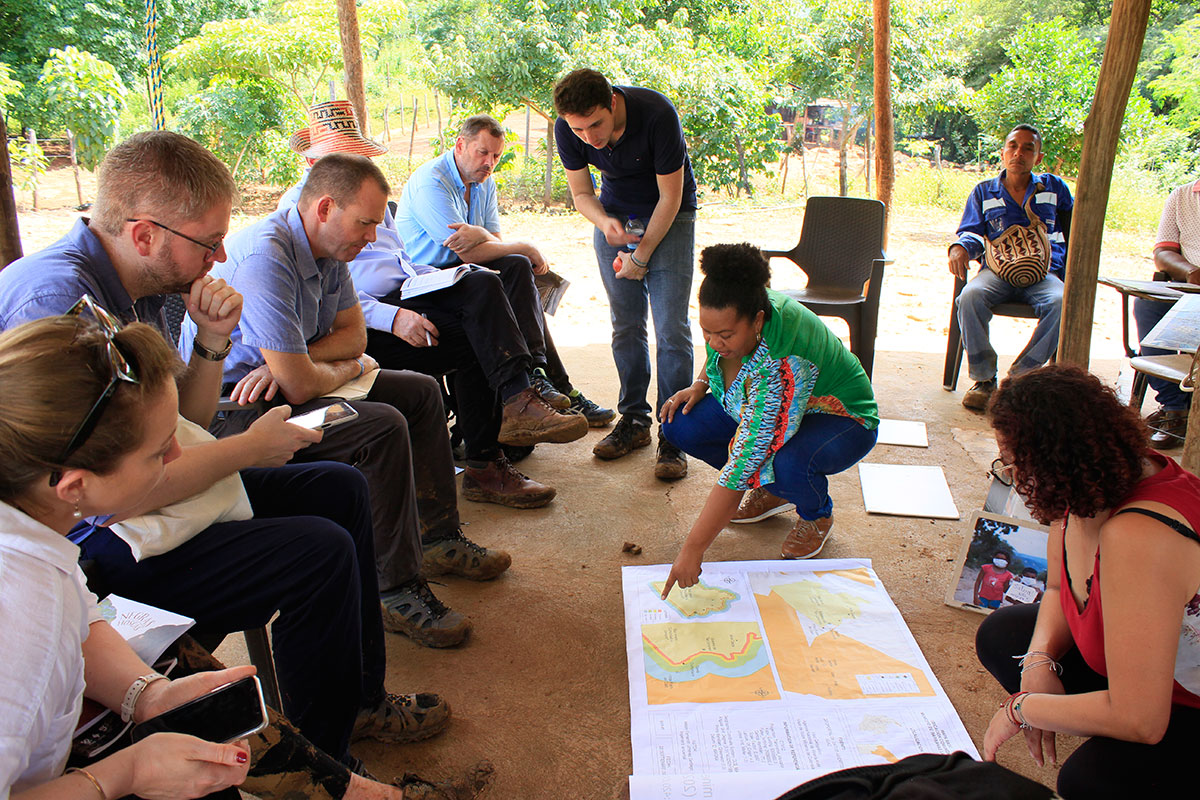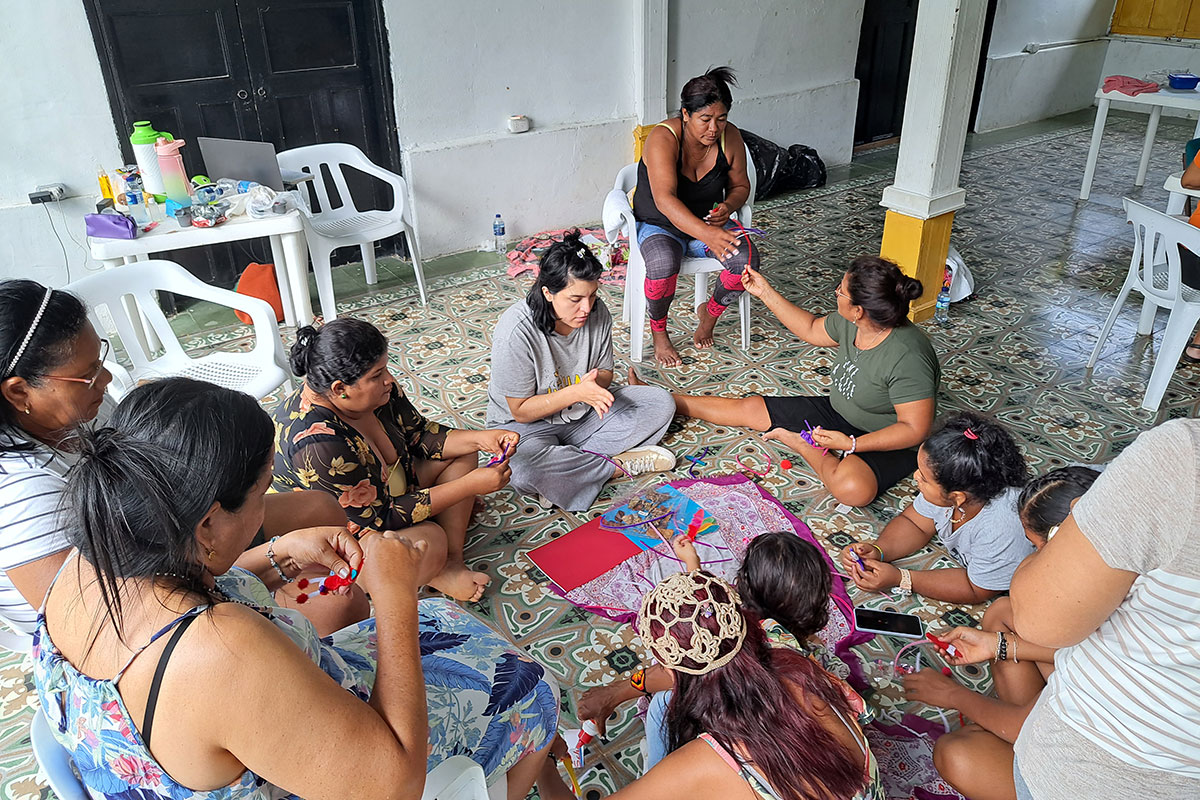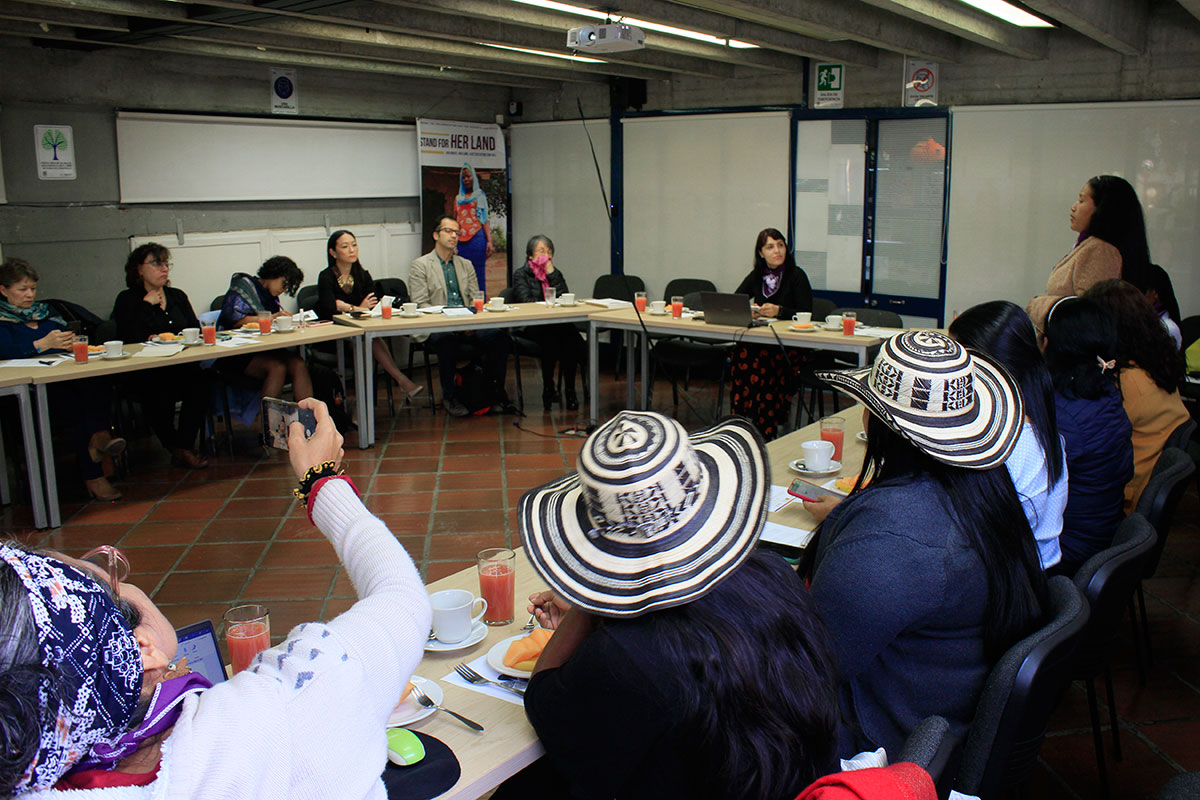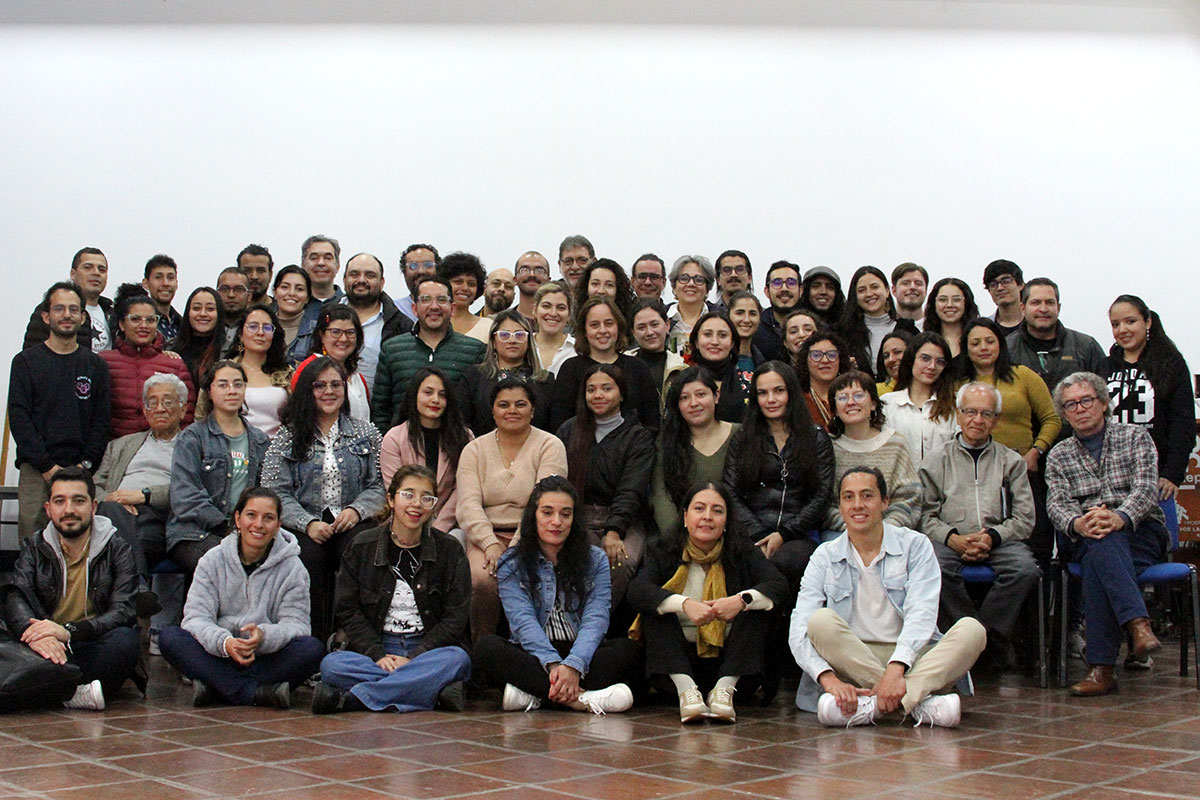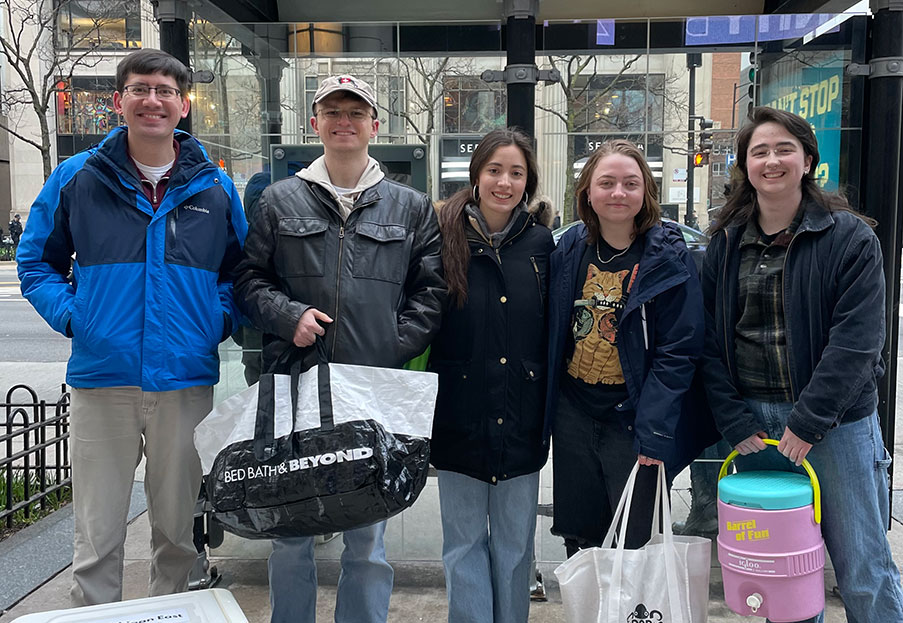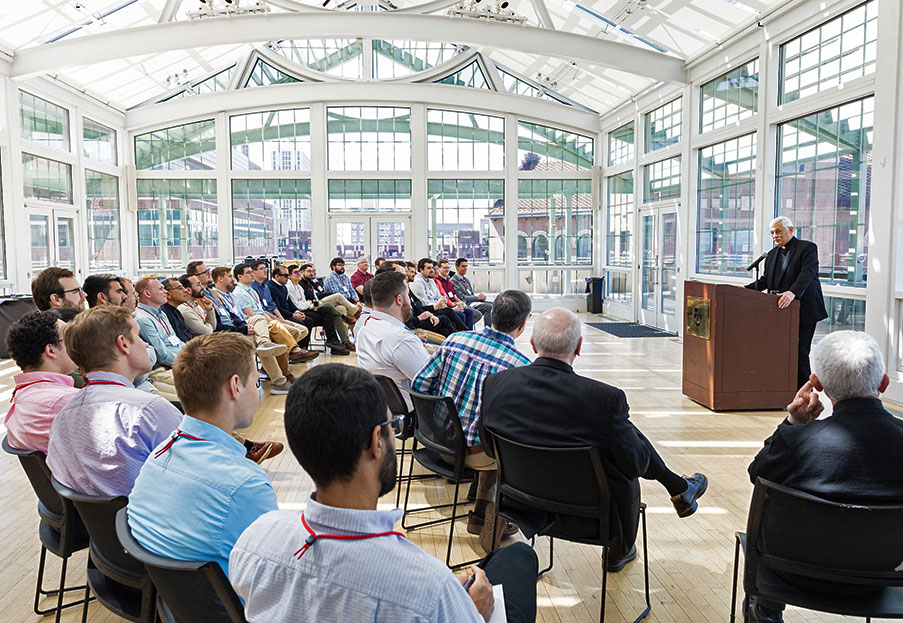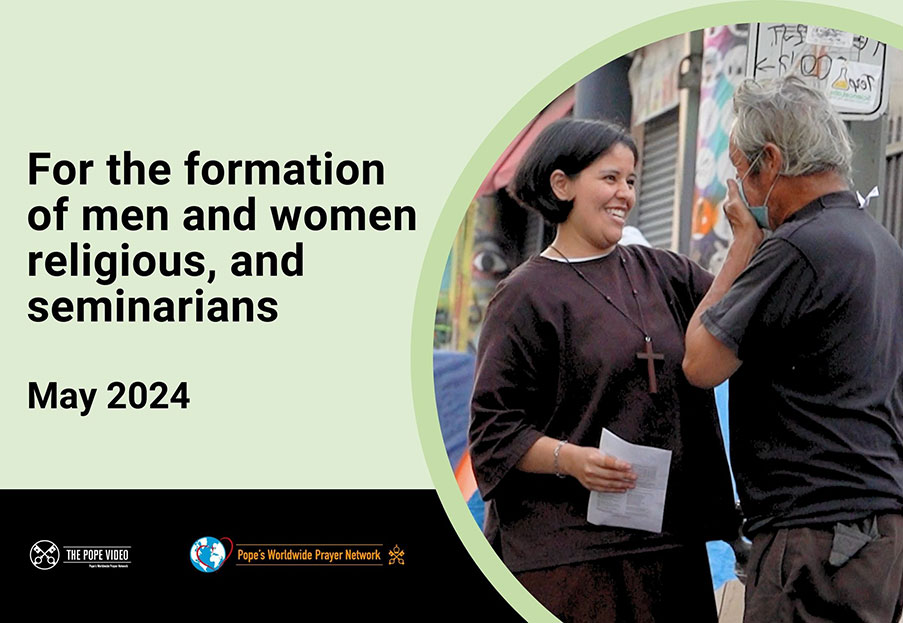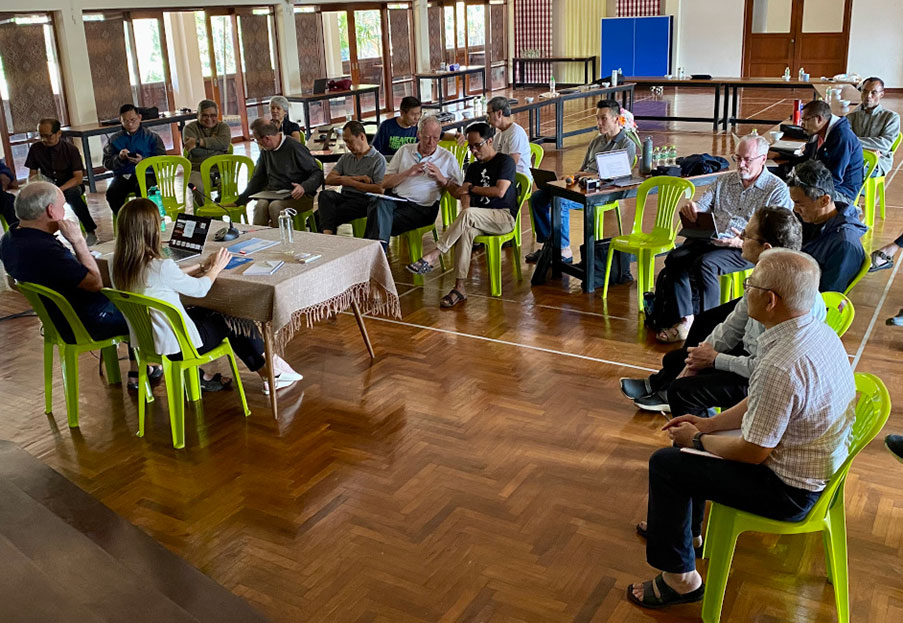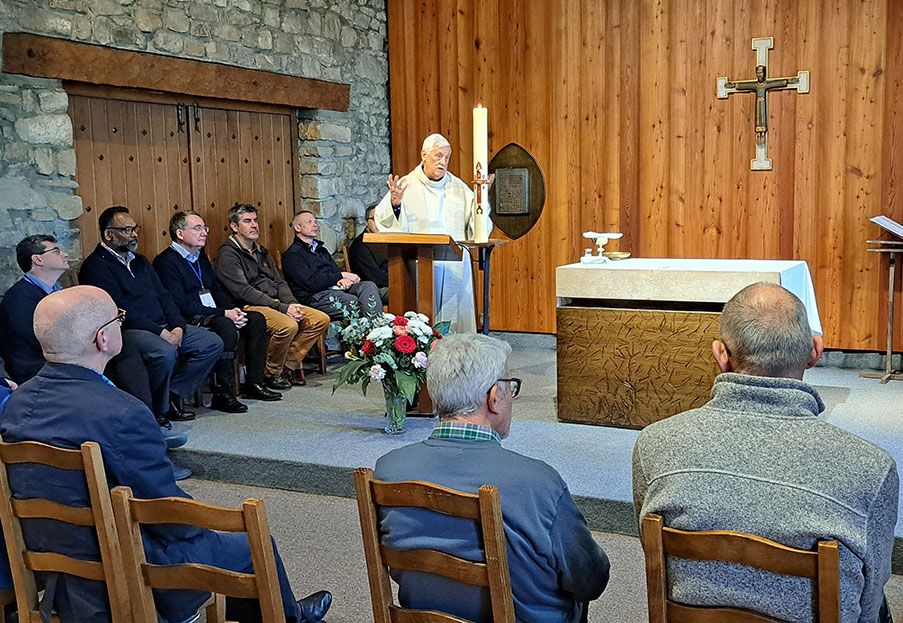CINEP/PPP of Colombia… more than just a long acronym!
One of the highlights of Father General’s visit to the Colombian Province was his visit to CINEP/PPP (the Centro de Investigación y Educación Popular/Programa para la Paz). For over fifty years, this institution has upheld the tradition of Jesuit social centres all over the world. These centres base their work on quality intellectual research. They serve a commitment to social justice: they accompany groups and individuals who are marginalised or threatened.
Martha
Lucía Márquez is the Executive Director, and Juan Pablo Guerrero, the
Vice-Director of the Centre. They shared their reflections with us,
particularly those aspects of the Centre’s commitment which respond to Colombia’s
troubled social context. For a long time now, violence has defined social
interaction in the country, and the work for peace remains difficult. Has this
commitment entailed suffering, even persecution, from those who oppose the
Centre?
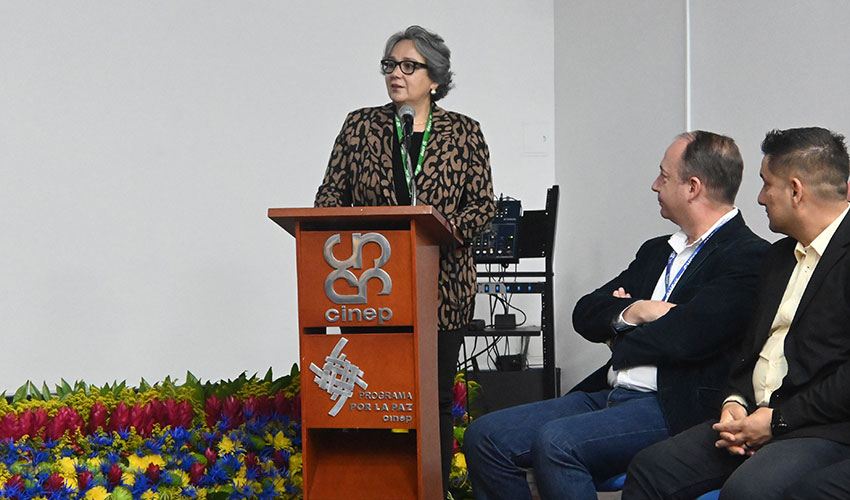
Martha Lucía Márquez.
CINEP has always striven to help build a just, sustainable, and peaceful society. It has done so by investigating the causes of conflicts, and by accompanying communities in their struggles to defend their rights. The Centre advocates for democracy and peace in a number of national and international contexts.
The Colombian government and the guerrillas of the Revolutionary Armed Forces of Colombia (FARC) signed a Peace Agreement in 2016. Since then, CINEP has worked to build bridges between communities and the structures which emerged from that agreement. These structures were designed to foster truth, justice, reparation, and the end of the conflict. To take an example: the Centre has accompanied a number of communities which documented cases of victimisation, and presented these to the Commission for the Clarification of the Truth, or to the Special Jurisdiction for Peace. CINEP also provides information to the Unit for the Search for Missing Persons.
CINEP/PPP’s defence of human rights and its accompaniment of communities has brought the Centre into the firing-line of some state and para-state actors. These see CINEP’s preferential action for the poor and excluded as a threat to their privileges. As a result, the Centre has suffered instances of harsh political persecution. The following stand out among these:
• During the government of Julio César Turbay Ayala (1978-82), a judicial process against two Jesuits from the Centre was pursued.
• Mario
Calderón Villegas and Elsa Alvarado Chacón, two CINEP/PPP researchers, were
assassinated in 1997. They were among twenty or so other members of human
rights organizations who were targeted that year.
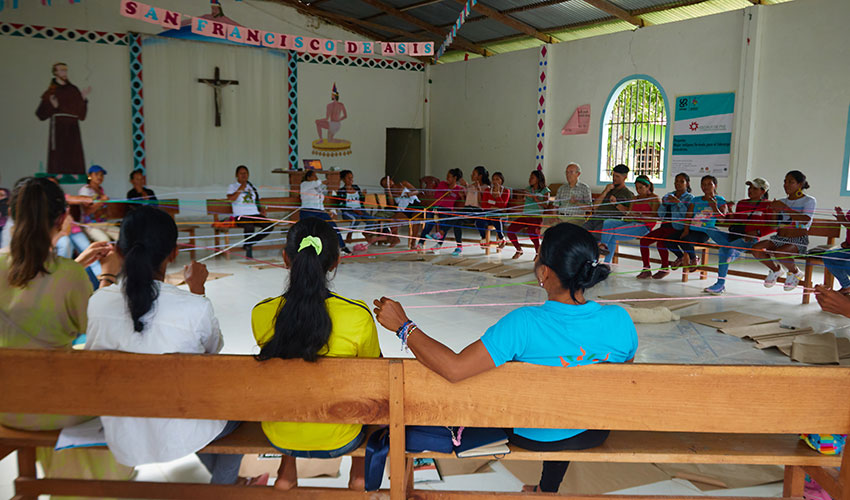
• Jesuit priest, Javier Giraldo Moreno, the founder of CINEP’s Human Rights and Political Violence Data Bank, has been persecuted over many years. Father Javier has been threatened, and criminal charges have been brought against him. He has been the victim of illegal surveillance, and there have been plots to make attempts on his life.
• During Álvaro Uribe’s term in office, the Administrative Department of Security (DAS), a unit attached to the Presidency of the Republic, profiled, followed, and kept members of CINEP/PPP under surveillance.
• The SIVEL database (the Online Political Violence Information System) and the web page www.nocheyniebla.org, where the reports produced by CINEP’s Human Rights and Political Violence Data Bank are stored, are attacked on a daily basis by computer hackers. There are frequent attempts to penetrate its firewall using spurious usernames and passwords.
• Added to the persecution, harassment, threats and violence which CINEP staff face generally, and the violations of data security and digital privacy, the Centre’s researchers, involved in documenting the general violence in the country, face heightened risks.
[In
the face of all this,] the CINEP/PPP team continues to work according to the
guidelines and inspirations of the Jesuit tradition: its focus is social
justice with an emphasis on working in solidarity with the poor and excluded.
